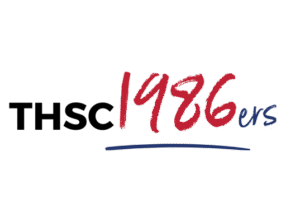Texas Education Freedom Accounts
Texas Education Freedom Accounts (TEFAs) give parents direct control of education funds to use for private school tuition, tutoring, curriculum, and other learning resources. Instead of funding school systems, TEFAs fund students, allowing families to choose the environment that best fits their child.
The Legislature passed the ESA program in 2025, with funds expected by summer 2026. Homeschool freedoms stay the same. There is no testing requirement, and participation is optional. Families who apply can access additional resources; those who don’t can continue homeschooling just as they do now.
What You Need to Know
There are information sessions happening across Texas for families interested in learning more about the new ESA/TEFA program for the 2026-20267 school year. These events are designed to help families learn more about the program and apply. Click here to find an information session in your area.
How? When? Where Do I Apply?
- Apply Through Odyssey beginning February 4 – March 17, 2026
What Documents Will I Need To Apply?
- For a full run down of what you will need in case one of the above is missing, click here for the Parent Application Checklist.
What Else Do I Need To Know?
- April 2026 – Funding notifications will be sent to parents beginning in early April 2026.
- July 1, 2026 – At least 25 percent of approved funding will be available in participant accounts.
- October 1, 2026 – At least 50 percent of approved funding will be available in participant accounts.
What Else Do I Need To Know?
The Texas Education Freedom Account website is your way of staying informed about all things related to ESA/TEFA. Please sign up for the latest updates as well as answers to TEFA FAQs. Signups are available for: parents and families, providers and vendors, and schools.
Additionally, be sure to sign up for updates from the Texas Home School Coalition where you can find a robust list of TEFA FAQs.
We think that’s it for now. As always, we remain grateful for your advocacy, engagement, and desire to help us Keep Texas Families Free.
How Will the Program Work for Families?
Families who choose to participate in the ESA program will:
- Apply to the program.
- Be selected to receive an ESA.
- Receive access to an account with the approved funds.
- Use the funds for qualified educational expenses, such as tuition, books, materials, tutoring, dual credit courses, and more.
NOTE: Funding for the program is limited, selection would be limited by available funds.
THSC’s Core Priorities for School Choice
THSC defends homeschool freedom and supports families who choose to participate.
- Make Programs Usable
Funds must cover real homeschool needs like curriculum, tutoring, therapies, dual credit, and supplies. -
Safeguard Participants
Parents who use the program must keep full authority over their child’s education. - Protect Non-Participants
No new regulations or requirements for homeschoolers who choose not to participate.
Still Have More ESA Questions? We’ve Got You Covered
Concerns with Testing Requirements
Concerns with ESA and UIL
Concerns with Parental Choice/Government Regulation/Homeschool Regulation/Segregation/UIL
Stay Informed
Stay informed and involved by following THSC as we continue to advocate for parental rights and education freedom.




